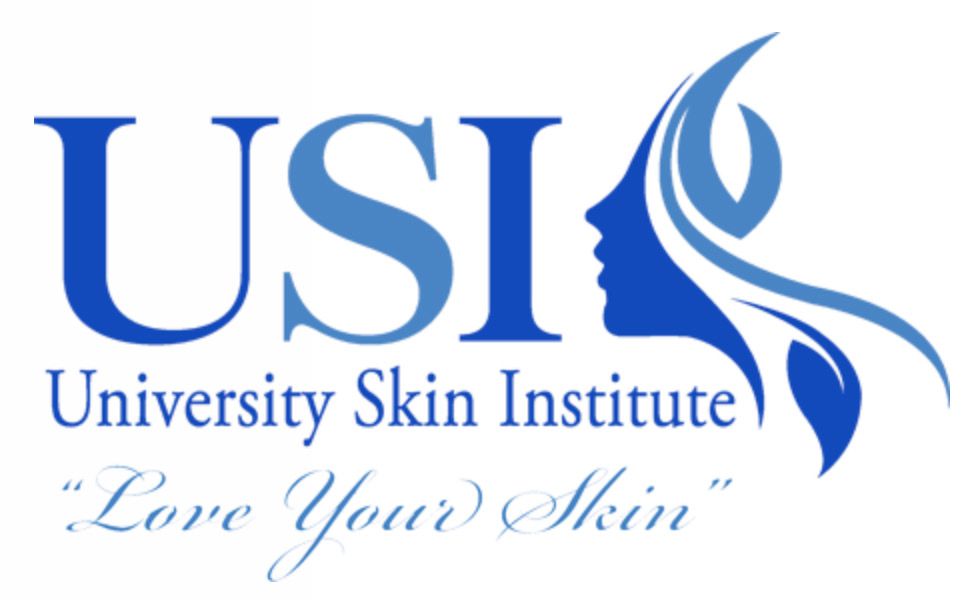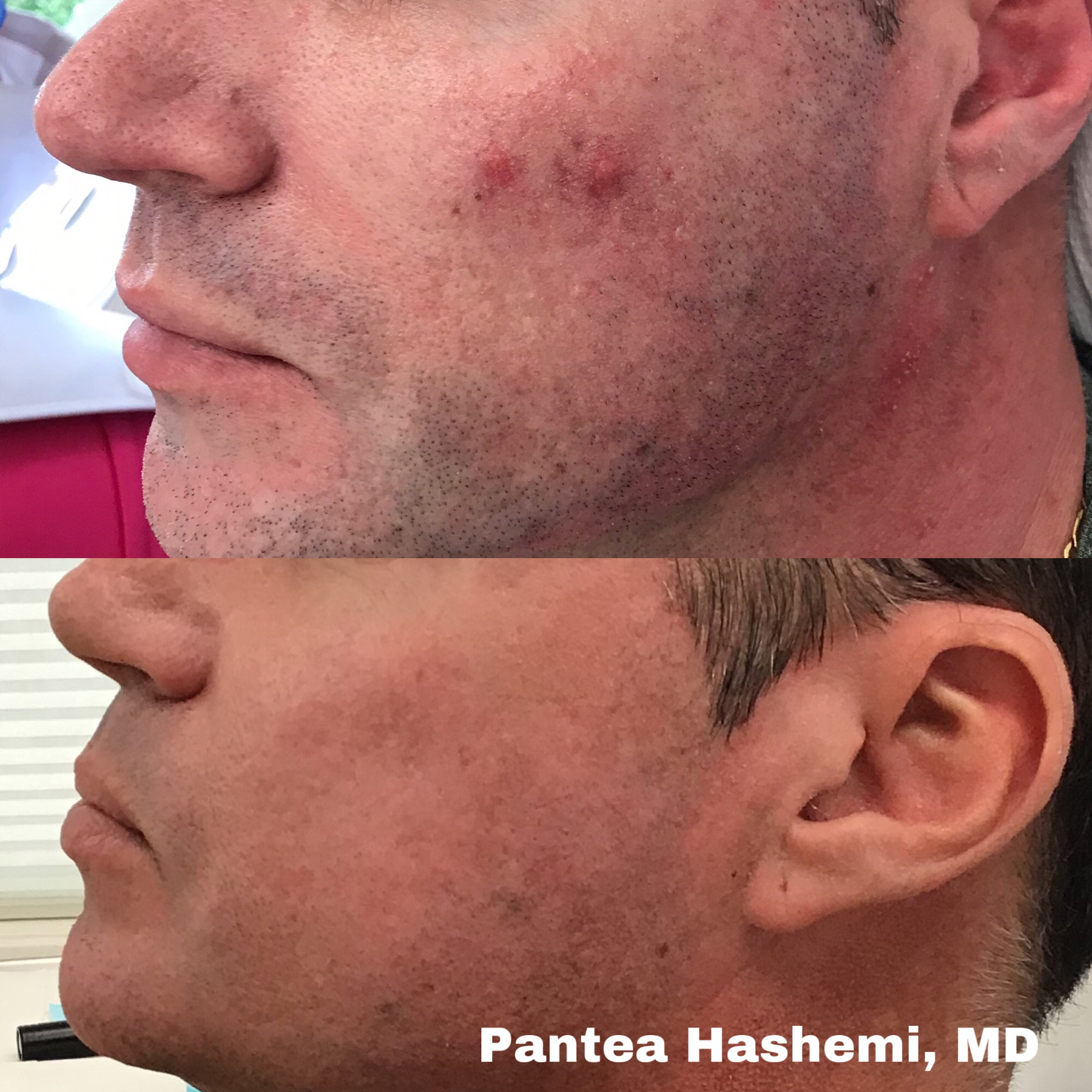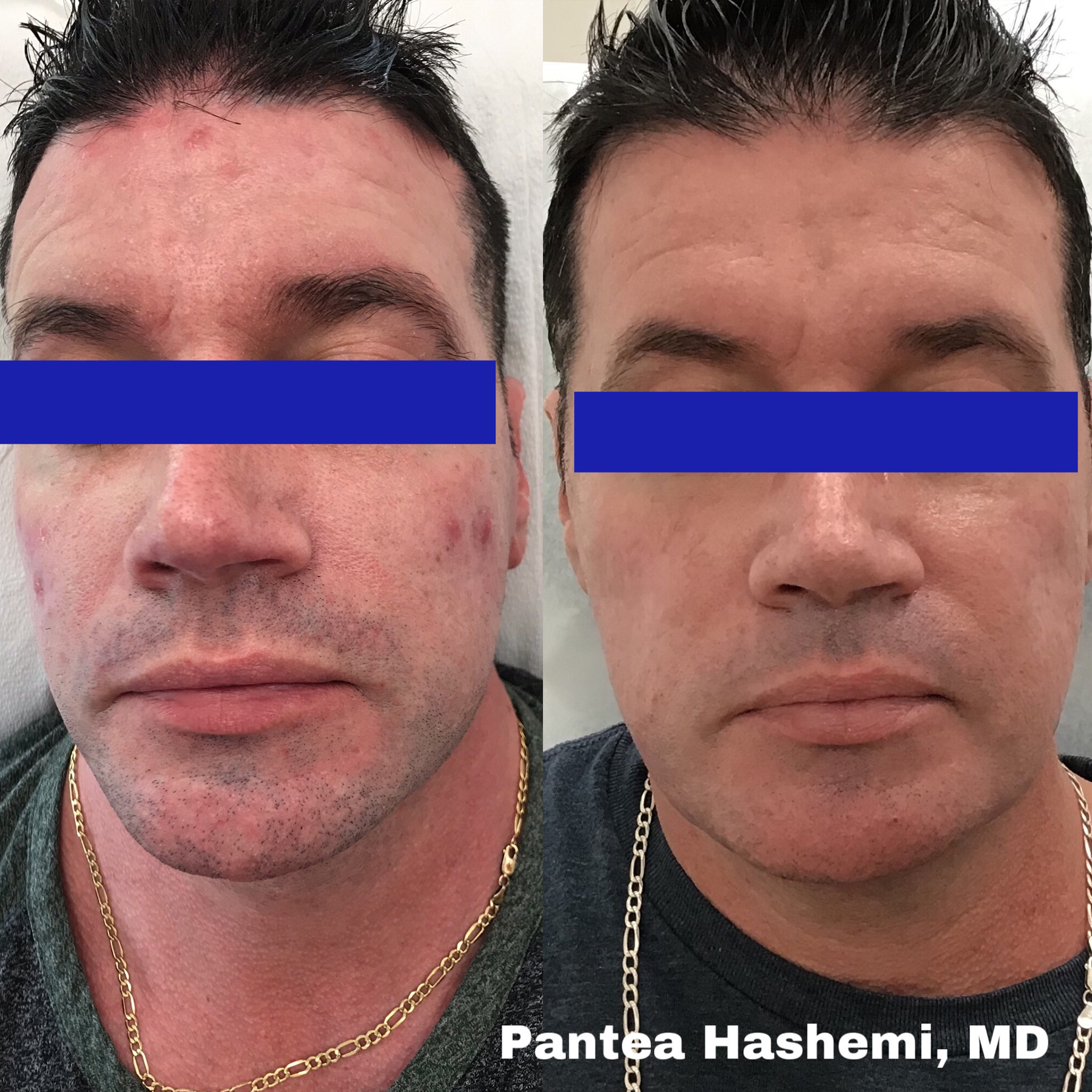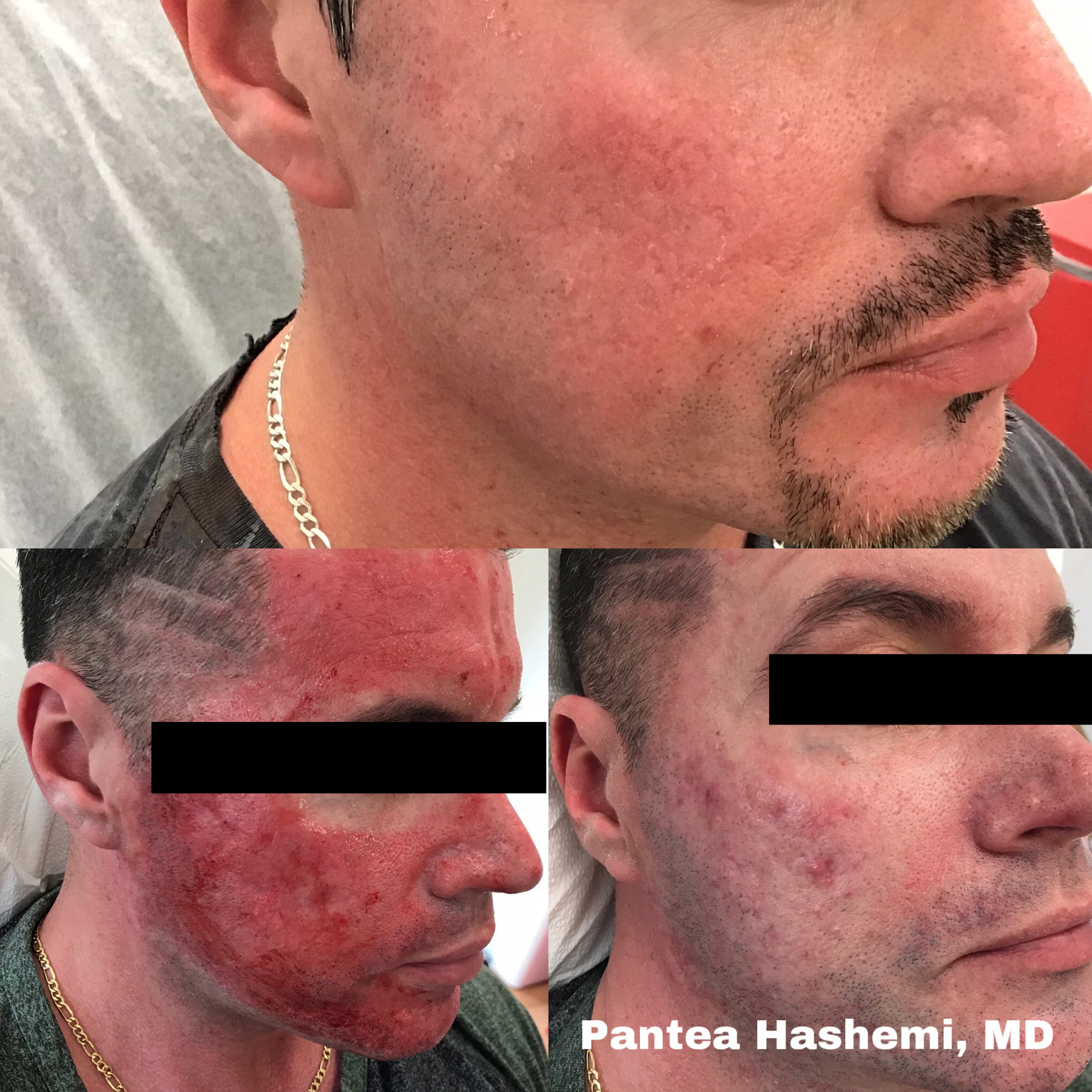Acne Vulgaris is the most common form of acne. Acne vulgaris has significant social and psychological effects. Studies report that severe acne can affect a person’s quality of life, self-esteem and mood. While acne is not a permanent condition, it can be disfiguring. Scarring is a permanent complication of acne vulgaris.
What causes Acne?
Acne is a complex disease that involves a combination of factors including hormones, inflammation, abnormal skin cell growth, excess production of sebum, overgrowth of bacteria inside clogged pores, stress, diet, certain medications and a genetic predisposition.
Hormone changes during puberty, monthly menstrual period, and around menopause stimulate increased oil production. Stress hormones also stimulate oil glands to increase oil production and clogs pores. Other triggers include high humidity and sweating. There are many effective products to treat acne.
How is Acne Diagnosed?
During a dermatology consultation, your board-certified dermatologist, Dr. Pantea Hashemi, will discuss the potential causes of your acne including your hormones, family history, and skin regimen. She will examine your skin to rule out other skin conditions such as rosacea that look like acne.
After evaluating you, Dr. Hashemi will grade the acne on a scale of one to four with four being the most severe. When there are just a few whiteheads, blackheads, and pimples it is considered mild acne. Noninflammatory and mild inflammatory acne often heal without leaving a scar. Moderate and severe acne frequently leave scars. Cystic acne is severe and the most common type of acne that affects teenagers and results in scarring.
How is Acne treated?
Successful treatment requires defenses against the clogged sebaceous glands, bacteria, and excess oil production. These treatments may be in the form of topical and/or oral medications as well as, laser and light treatments.
Treatment options are determined by the severity of acne. The goal of medical treatment is to prevent and treat acne to avoid scarring and limit the extent and duration of acne. During your appointment with Dr. Hashemi you will be instructed on the best way to take care of your skin to prevent clogged and infected pores. A skin care regimen including cleansers, moisturizers, make-up, and medications will be discussed.
Dr. Hashemi may prescribe topical acne treatments. These medications normalize skin cell turnover and prevent clogged pores. Topical medications can be drying, but if used in small amounts, in combination with a moisturizing cream, they can be very effective in preventing acne and improving skin quality.
Your treatment plan may also include oral or topical antibiotics to kill the bacteria, decrease inflammation, and reduce oil production.
For women suffering from hormonal acne, birth control pills or other hormonally acting medications may be considered.
In-office dermatologic treatments for severe acne include:
Chemical peels open pores to treat blackheads and acne papules and can improve mild scarring.
Painful, inflamed acne cysts can be injected with low strength steroid solution to reduce inflammation and help to prevent scarring.
Acne scarring can be improved with a number of treatments
Treatment will help to clear the skin, prevent new breakouts, and reduce the risk of scarring.
Combination therapy has been found to be more effective in treating acne than monotherapy.
Contact University Skin Institute to schedule a consultation with Dr. Hashemi and discover all available
treatment options








